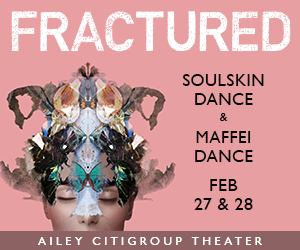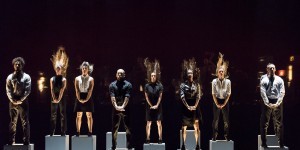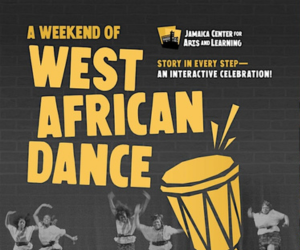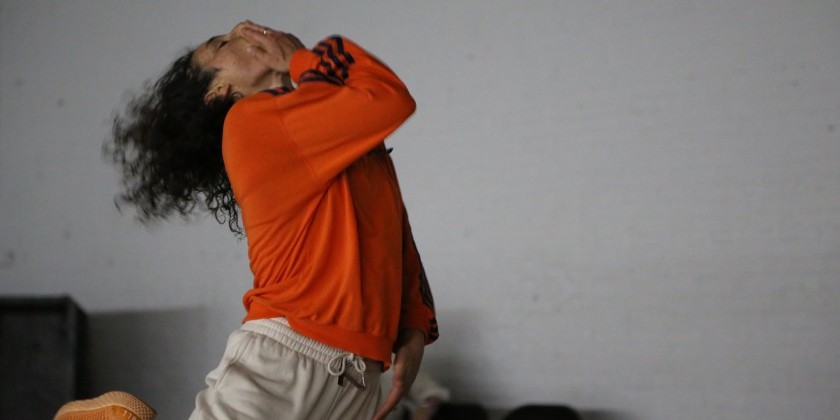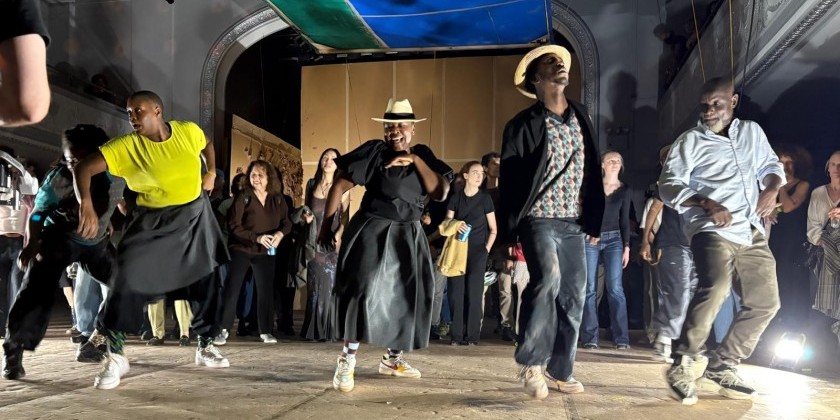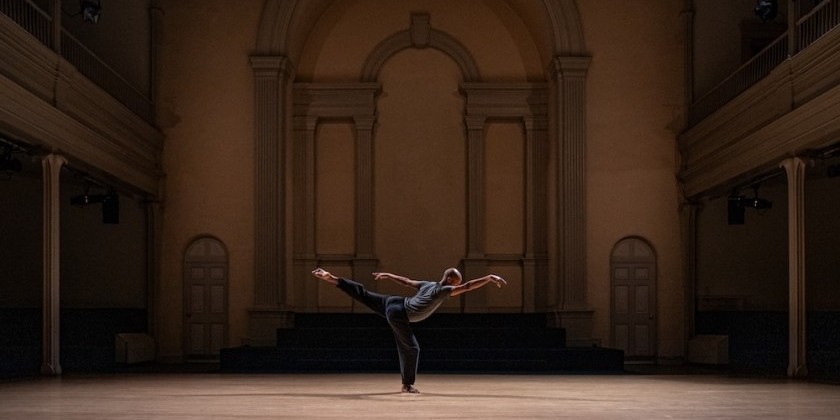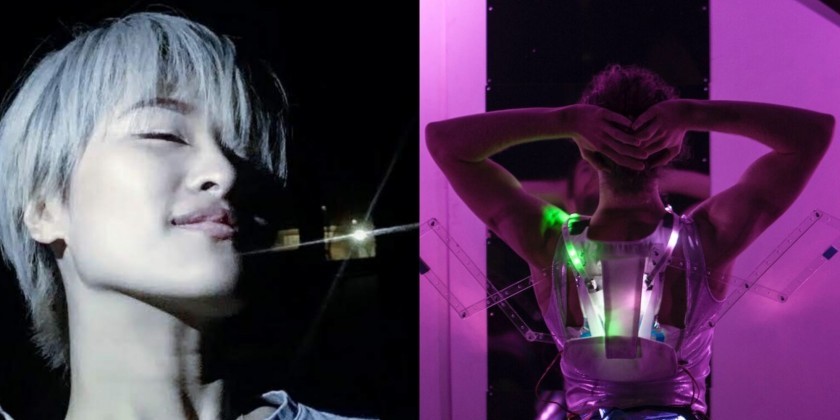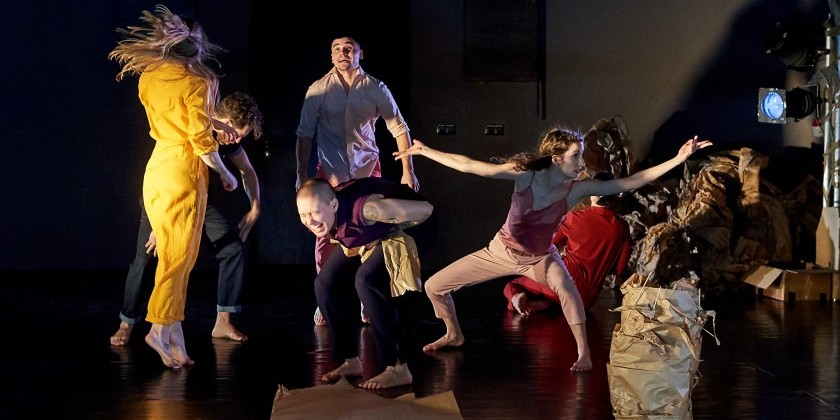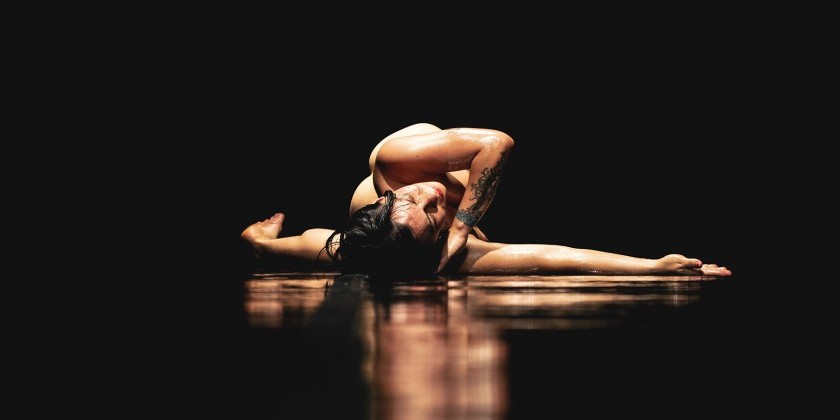Impressions of: nora chipaumire's "portrait of myself as my father" at BAM
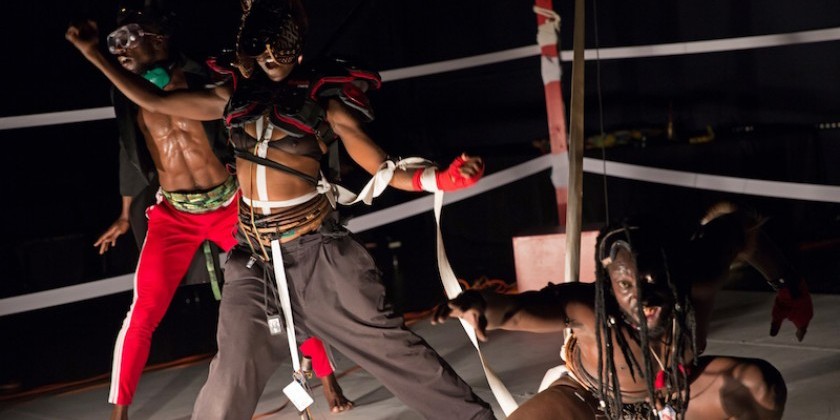
BAM Fisher
September 15, 2016
Choreographer: nora chipaumire
Performers: nora chipaumire, Pape Ibrahima Ndiaye (aka Kaolack), Shamar Watt
Music/Soundscore: Philip White
Zimbabwe-born, U.S.-based choreographer nora chipaumire opens her show as the audience filters into BAM Fisher. Blinding white light silhouettes a boxing ring surrounded by tiered rows, and as audience members step into the theater, shading their eyes to look for empty seats, they quickly see chipaumire in front of them, tethered to the ring by flexible bands. She weaves her body while growling and grunting into a microphone. Moment by moment, her attitude shifts, never lingering. She's a sportscaster, a wild animal, a celebrity facing paparazzi — or simply possessed.
Ghosts are certainly present at this performance. In portrait of myself as my father, chipaumire embodies the masculine figure she barely knew and only recently could investigate. Her opening pose, straining toward the entrance against her elastic straps, disturbs and evokes the history of African people in chains or put on display as exotic curiosities.
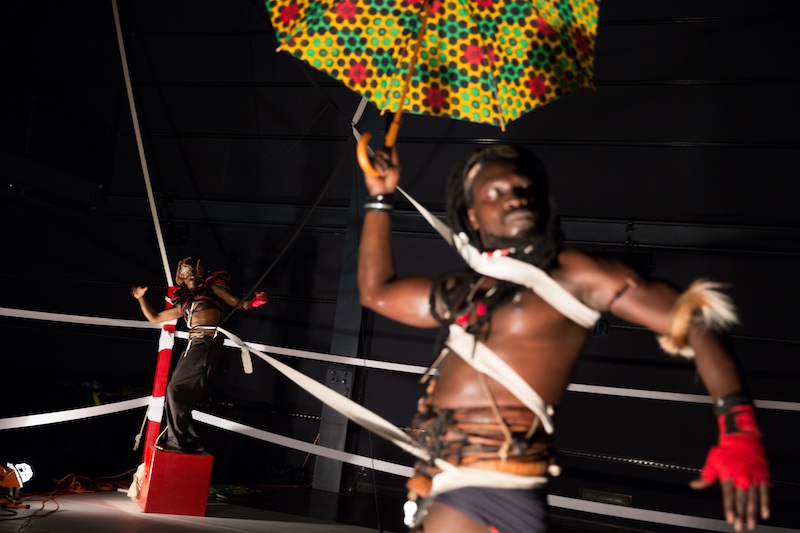
Pape Ibrahima Ndiaye (aka Kaolack) joins chipaumire in the ring, while Shamar Watt acts as a kind of referee, pumping up the crowd, handing off props, and occasionally stepping inside the boxing arena to create a trio.
The dancers exhibit gestures of masculinity. They step with their chests puffed out, stomp, or soar into the air. Kaolack moves on a long diagonal, in an electric, frightening solo in which he vocalizes guttural sounds while crawling sinuously or attacking the ground with his fists. Watt, chipaumire, and he often address the crowd, either with growls or words, in a way that teeters close to losing its linguistic meaning and becoming pure feeling.
At one point, chipaumire intones the steps to becoming a Black man. It becomes obvious, though, these aren't the usual steps — feeling your way along and taking time to fail. It's an ominous death sentence: “If you don't want to fight, you better run,” she says. She suggests “fight,” “run,” and “fuck” among other equally grim options. The value of a Black, African man, chipaumire observes, is minimal at best, utterly disposable at worst.
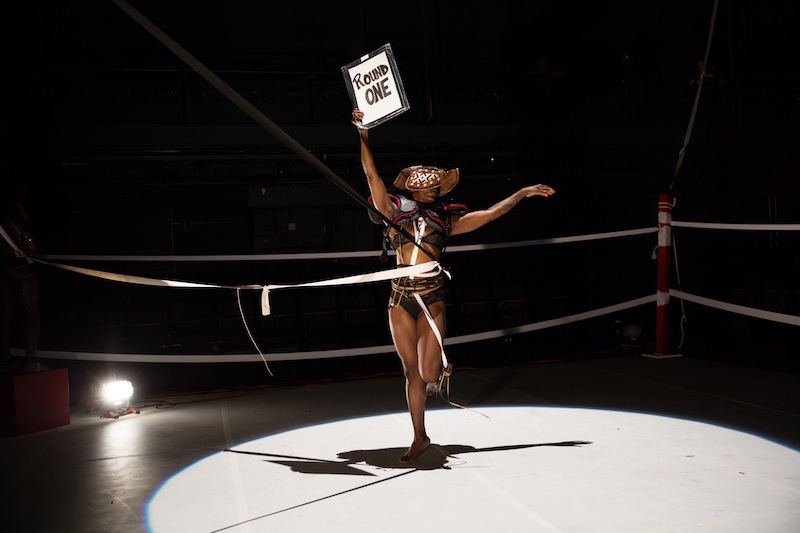
Also unsettling, though, is chipaumire's ambiguous character. She's clearly masculine in this performance, but is she her father? When she lists off the limited possibilities for Black men, is she her father's conscience speaking to himself? A mother preparing her son for potential violence? The title suggests the ways in which our experience of a father, or lack of one, imprints us with a sense of how masculinity functions. By blurring her father into herself, chipaumire reveals that the violent elements of masculinity don't come from personal failings but from a culture that dispossess and devalues Black men.
This idea, though, has a long gestation and isn't fully clear without the program notes in which chipaumire lays out her thesis: Rather than a virgin sacrificed for angry gods, African maleness is offered to the god of capital. In an economic world girded by the expendable, who gets consumed and thrown away?
Eventually, the boxing ring falls down, as Watt leaps back and forth across the theater with breathtaking height and agility. No one has conclusively won the match. Or, perhaps, chipaumire's father has lost a bout against himself. The trio ends upstage in semi-darkness, their bodies blurring together. chipaumire tells us the performance is about her father, but also about her, because she carries him. As the daughter of a Black African man, she couldn’t fully deny their relationship, even if she wanted to.





